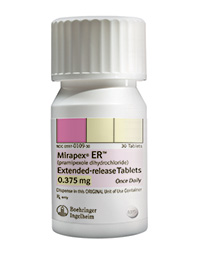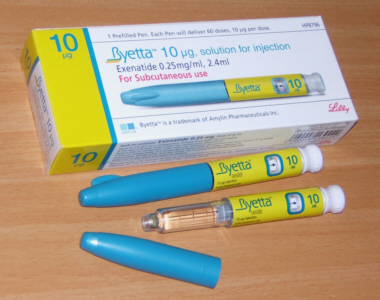.gif) VIARTIS
|
|||||||||
|
PARKINSON'S DISEASE |
|||||||||
|
|
|||||||||
|
|
PARKINSON'S DISEASE NEWS
|
|
|||||||
|
MAY 2014
20th May 2014 - New research PRAMIPEXOLE CLINICAL TRIAL RESULTS IN PARKINSON'S DISEASE European Journal of Neurology [2014] 21 (5) : 736-743 (R.A.Hauser, A.H.Schapira, P. Barone, Y.Mizuno, O.Rascol, M.Busse, C.Debieuvre, M.Fraessdorf, W.Poewe) Complete abstract The long term safety and efficacy of pramipexole was assessed as an extended-release oral formulation and immediate release formulation in early or advanced Parkinson's Disease. Pramipexole, which is marketed as Mirapex, Mirapexin, and Sifrol, is a dopamine agonist. For more information go to Pramipexole
In both early and advanced Parkinson's Disease better efficacy was achieved when using the extended release version of pramipexole. The adverse events were typical for dopaminergic drugs. In order to refer to this article on its own click here
16th May 2014 - New research THE EFFECT OF ACUPUNCTURE IN PARKINSON'S DISEASE Journal of Neurological Science [2014] Apr 24 [Epub ahead of print] (H.J.Kim, B.S.Jeon) Complete abstract A comprehensive review was carried out to assess the evidence from recent clinical studies regarding the efficacy of acupuncture on Parkinson's Disease. Acupuncture is an ancient Chinese form of medicine in which fine needles are inserted and manipulated into the skin at certain points on the body for therapeutic purposes. For more information go to Acupuncture
The number of clinical trials, their total sample size, and the way they were carried out, were not enough to prove the favorable effects of acupuncture. So far the evidence for the effectiveness of acupuncture for treating Parkinson's Disease is not convincing. In order to refer to this article on its own click here
9th May 2014 - New research DIABETES TREATMENT FOR PARKINSON'S DISEASE Journal of Parkinson's Disease [2014] Mar 24 [Epub ahead of print] (I.Aviles-Olmos, J.Dickson, Z.Kefalopoulou, A.Djamshidian, J.Kahan, P.E.Fmedsci, P.Whitton, R.Wyse, T. Isaacs, A.Lees, P.Limousin, T.Foltynie) Complete abstract Exenatide, which is a treatment for diabetes, has been tested as a disease modifying treatment for Parkinson's Disease. Exenatide is an injected glucagon-like peptide-1 agonist medication marketed as Byett and Bydureon. It is used in the treatment of insulin resistance in patients with Type 2 diabetes. It differs in pharmacological action and chemical structure from insulin. For more information go to Exenatide
In a previous study, when people with moderate Parkinson's Disease received subcutaneous injections of Exenatide for a year there were marginal improvements in Parkinson's Disease motor and cognitive measures. Exenatide treated patients had a mean improvement after one year on the UPDRS of 2.7 compared with a mean decline of 2.2 points in controls. Exenatide was well tolerated but weight loss was common. For more information go to the Complete abstract In order to refer to this article on its own click here
|
|||||||||
.gif) |
|||||||||
| �2006-2014 Viartis | |||||||||
| [email protected] | |||||||||


 Using
the MDS-UPDRS, which is a means of assessing the extent of Parkinson's
Disease symptoms, people with Parkinson's Disease were assessed who had
previously taken Exenatide. People with Parkinson's Disease had an advantage
of 5.6 points (with a range of 2.2 to 9.0) on the assessment. They also had
a better score when assessed concerning dementia. Unusually, the effect of
Exenatide on Parkinson's Disease had continued beyond its use.
Using
the MDS-UPDRS, which is a means of assessing the extent of Parkinson's
Disease symptoms, people with Parkinson's Disease were assessed who had
previously taken Exenatide. People with Parkinson's Disease had an advantage
of 5.6 points (with a range of 2.2 to 9.0) on the assessment. They also had
a better score when assessed concerning dementia. Unusually, the effect of
Exenatide on Parkinson's Disease had continued beyond its use.